
Find the top tools to maximize your productivity.
Find the Best AI Tools to Optimize Your Work and Personal Tasks
Best Business Intelligence AI Tools in 2024
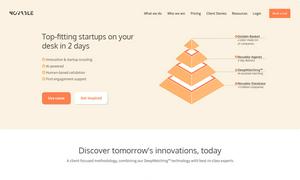
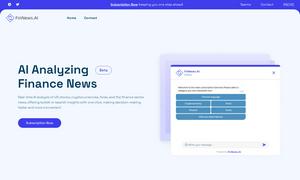
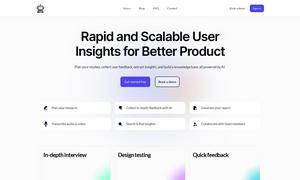
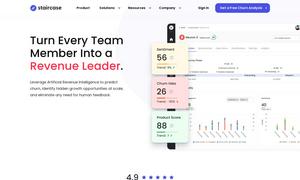

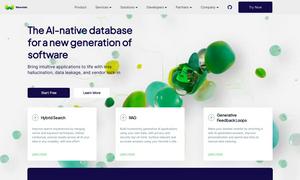
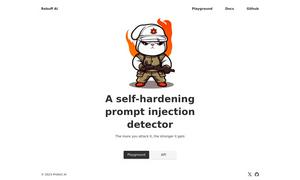
What is Business Intelligence
Business Intelligence Category encompasses tools and practices that transform data into actionable insights. Its main purpose is to enhance decision-making through data visualization, reporting, and analytics. Key benefits include improved operational efficiency, better strategic planning, and the ability to identify trends quickly, making businesses more competitive.
How Business Intelligence works
The Business Intelligence Category operates through the integration of various data sources, utilizing tools that enable data visualization, reporting, and analytics. Users typically gather data, analyze it for patterns, and generate reports or dashboards that provide insights. This process helps organizations understand trends and make strategic decisions, optimizing their business operations.
What are the advantages of Business Intelligence?
The Business Intelligence Category offers significant advantages including enhanced efficiency, data-driven decision-making, and rapid access to insights. It provides organizations with the ability to visualize complex data sets, making it easier to identify trends and opportunities. These unique features contribute to improved performance and competitive positioning.
Key Features for Business Intelligence
Data Visualization Tools
Data visualization tools within the Business Intelligence Category allow users to transform complex data into actionable insights effortlessly. These tools enhance understanding through engaging visuals, enabling better decision-making and quicker responses to market changes, thus driving competitive advantages.
Automated Reporting Features
Automated reporting features in the Business Intelligence Category streamline the analysis process by generating reports without manual input. This efficiency saves time and reduces human error, allowing organizations to focus on strategic initiatives and respond swiftly to changes in data trends.
Predictive Analytics Capabilities
Predictive analytics capabilities in the Business Intelligence Category help organizations forecast future trends by analyzing historical data. This unique feature empowers businesses to make proactive decisions, mitigating risks and capitalizing on opportunities, enhancing their overall strategy and market position.
Use Cases for Business Intelligence?
In practical scenarios, the Business Intelligence Category is utilized for sales forecasting, financial analysis, and market research. Businesses apply these insights to optimize processes, enhance customer experiences, and adapt to changing market conditions. By addressing specific needs, this category serves as a vital resource for organizations aiming to achieve strategic goals.
FAQs for Business Intelligence
What advantages does the Business Intelligence Category offer for decision-making?
The Business Intelligence Category significantly enhances decision-making by providing data-driven insights through sophisticated analytics and visualization tools. These capabilities enable businesses to quickly identify trends, evaluate performance, and make informed choices that align with their strategic objectives, ensuring competitive advantage.
How does data integration work within the Business Intelligence Category?
Data integration within the Business Intelligence Category involves collating data from multiple sources into a unified system. This process allows organizations to analyze comprehensive datasets, yielding a holistic view of their operations. By enhancing the depth of analysis, businesses can uncover insights that drive effective strategies and outcomes.
How can the Business Intelligence Category improve operational efficiency?
The Business Intelligence Category improves operational efficiency by automating data collection and reporting processes. By streamlining these functions, organizations can minimize manual errors and reduce the time spent on analysis, allowing teams to focus on strategic initiatives that drive growth and optimize resource utilization.
What makes the Business Intelligence Category stand out from other analytics tools?
The Business Intelligence Category stands out due to its comprehensive approach to data analysis and visualization. It integrates various data sources seamlessly, offering unique features like predictive analytics and automated reporting, making it a vital tool for organizations seeking deeper insights and enhanced decision-making capabilities.
What key benefits does predictive analytics provide in the Business Intelligence Category?
Predictive analytics in the Business Intelligence Category offers crucial benefits such as forecasting future trends based on historical data. This empowers organizations to make proactive decisions, foresee market shifts, and strategize accordingly, ultimately enhancing their competitive edge in the marketplace.
How do users typically interact with the tools in the Business Intelligence Category?
Users typically interact with tools in the Business Intelligence Category through intuitive dashboards and reporting interfaces. This user-friendly engagement allows them to visualize data, perform analyses, and generate insights efficiently, enabling timely decision-making that aligns with their business objectives and market trends.



























